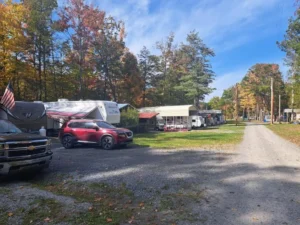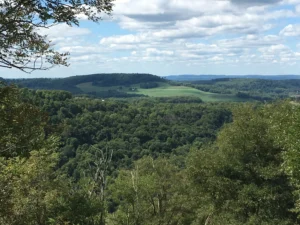
Maintaining the pristine beauty of nature while enjoying the comforts of an RV Park or the simplicity of a campsite is essential for the conscientious traveler. Waste management is at the forefront of this responsibility. Given the increasing popularity of RV travel and camping, effective waste disposal practices are more critical than ever. Here’s a guide on ensuring that RV parks and campgrounds remain clean and environmentally friendly.
The Basics: Understanding Types of Waste
- Solid Waste: This includes typical household trash like packaging, food scraps, and non-recyclable items.
- Recyclables: Materials like paper, cardboard, plastics, aluminum, and glass that can be processed to make new products.
- Black Water Waste: Waste from toilets in RVs.
- Grey Water Waste: Wastewater from sinks, showers, and washing machines in RVs.
Effective Segregation: A Step Forward
Before disposing of waste, it’s vital to segregate it effectively. Properly separating recyclables from non-recyclables and ensuring a clear distinction between black and grey water waste is crucial. Color-coded bins and clear signage can aid in this process, helping campers at RV parks make informed disposal choices.
Solid RV Park Waste Management Tips
- Reduce: Encourage campers to buy products with minimal packaging or opt for reusable items.
- Reuse: Promote the use of reusable containers, cutlery, and other items to minimize waste generation.
- Recycle: Set up dedicated recycling stations at strategic locations within the park or campground. Ensure clear signage indicating what can and cannot be recycled.
- Dispose: Ensure that non-recyclable waste is collected and disposed of in designated landfills.
Managing Black and Grey Water Waste
- Regular Maintenance of Dump Stations: RV parks should have a dedicated dump station where travelers can safely dispose of their black and grey water waste. These stations should be regularly maintained to avoid blockages and ensure hygiene.
- Educate RV Users: Provide clear guidelines on the proper use of dump stations. Encourage the use of eco-friendly toilet chemicals to reduce the environmental impact.
- Monitor for Leaks: Regularly inspect the campground for water leaks and ensure prompt repairs to prevent contamination of the ground.
Promote Composting
Composting is an effective way to reduce food waste and create valuable soil. Campgrounds can set up dedicated composting areas where campers can deposit their organic waste. Over time, this waste transforms into nutrient-rich compost that can be used to enrich the soil in and around the campground.
Regular Cleaning Schedules
To prevent littering and maintain the beauty of the campground, establish regular cleaning schedules. Employ staff or engage volunteers to patrol the area, pick up trash, and ensure waste is disposed of correctly.
Educate Campers
Awareness is the key to effective waste management. Offer orientation sessions for new campers, detailing the campground’s waste management policies. Use brochures, signs, and workshops to impart knowledge and foster a sense of collective responsibility.
Conclusion
RV parks and campgrounds offer a unique blend of nature and comfort. But with this luxury comes the responsibility of safeguarding the environment. Effective waste management is not just about cleanliness; it’s about preserving the integrity of the natural spaces we love so much. By implementing robust waste disposal practices and fostering an environment of awareness and responsibility, campgrounds can ensure that they remain beautiful, clean, and sustainable for generations to come – Something you can expect at Glendale Valley Campground.








